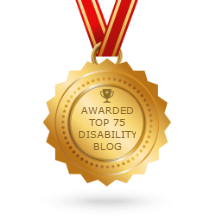By Amanda Bulgrin, Program Development Coordinator, Search Inc
This April, autistic self-advocates are calling for change. In the past, the month of April has been observed as Autism Awareness month, but advocates point out it is more effective and necessary to practice Autism Acceptance not just in April, but year-round.
Awareness is a passive acknowledgment that a group exists without asking for action. Another troubling aspect of autism awareness is it furthers the narrative that autism and autistic people are separate from their neurotypical (non-autistic) counterparts and should be treated with sympathy or caution. This can further the social divide between neurotypical people and autistic people, limiting access to public services, education, and opportunities to develop relationships with peers.
Acceptance calls for compassionate action so autistic people have equal access to education, employment, housing, health care, and their community. Acceptance also means respecting autistic individuals as they are and understanding the things that make them unique rather than trying to change them or their behavior to fit neurotypical expectations.
As a part of this change, many autistic people have begun to use the rainbow infinity symbol in place of the previously used puzzle piece. The puzzle piece, advocates argue, represents autistic people as being mysterious and something to be figured out rather than normalizing their world view as part of the human experience. The rainbow infinity symbol uses color to represent the full spectrum of abilities autistic people possess and the idea that being autistic is just another expression of the human genome. The infinity symbol stands for neurodiversity, meaning there are an infinite number of types of minds in the world and each is unique.
Further, the autistic community chooses to use the word ‘autistic’ rather than ‘person with autism,’ as they are proud to have autism, and it is part of their identity. As with any situation, if you are ever unsure of wording or sharing correct information about a disability, ask the person. Autistic people have a strong culture of self-advocacy and we should let them lead the way as we move away from autism awareness and toward autism acceptance.






No Comments
No comments yet.